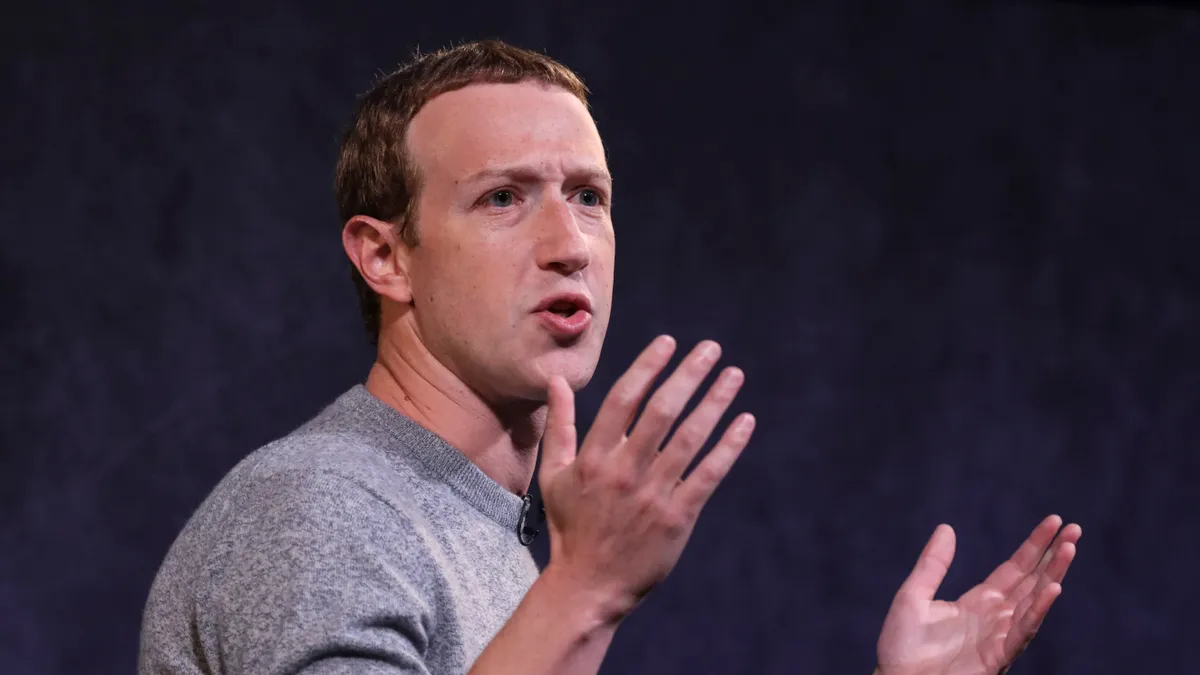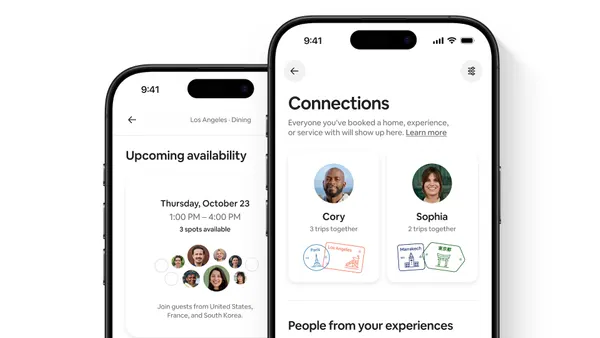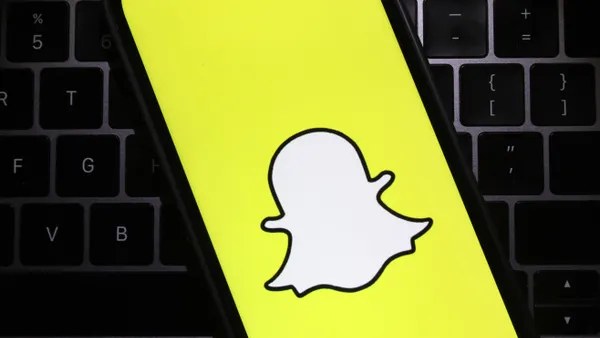Dive Brief:
- Meta Platform’s revenue grew in the first quarter, according to an earnings release. The news suggests that the social media giant is showing signs of a turnaround following several quarters of declines.
- Discussing the results with investors, CEO Mark Zuckerberg said that a renewed focus on artificial intelligence (AI) is buoying advertising. AI tools increased monetization efficiency for Reels, a TikTok lookalike, by 30% on Instagram and 40% on Facebook versus the prior quarter.
- AI-powered recommendations that boost content from people and pages users don’t follow are spurring engagement, representing more than 20% of content in Facebook and Instagram feeds. People now reshare Reels posts more than 2 billion times daily, a metric that’s doubled over the past six months.
Dive Insight:
Meta’s promised “year of efficiency” appears to be producing some results, though the belt-tightening strategy has also come at the cost of several painful rounds of layoffs, with another one planned for May affecting the company’s business groups, Zuckerberg said. Even as Meta’s financials recover, the CEO affirmed that the mandate around slowing hiring and streamlining internal operations, including through prioritization of technical work, remains the same.
The WhatsApp and Instagram owner returned to growth in Q1 2023, with revenue up 3% year-over-year for a total of $28.6 billion. Ad impressions across Meta’s services grew 26%, while the average price per ad dropped 17%, reflecting how a larger share of growth came from less well-monetized formats and regions.
A revenue bump follows three consecutive quarters of declines and beat analyst expectations. Meta offered second-quarter guidance that was also above Wall Street’s estimates, with revenue forecast to land in the $29.5 billion to $32 billion range.
“In this economic environment — and after the disaster that was 2022 — 3% year over year revenue growth is an accomplishment. Meta’s strong guidance for Q2 revenue is another indicator that the company may be starting to come out of the woods,” said Insider Intelligence principal analyst Debra Aho Williamson in emailed comments. Williamson cautioned that Meta still has a number of obstacles to contend with, including TikTok, retail media networks and continued disruptions posed by Apple’s privacy framework.
Improved monetization for Reels has been supported by AI, a sign that the technology could help Meta navigate policy changes from the iPhone maker that have made targeting and measuring mobile campaigns more of a challenge. AI has also increased the visibility of Reels posts as more feeds become recommendation-driven.
Executives have previously acknowledged that Reels is a near-term drag on performance since it takes time away from comparatively mature areas of Facebook and Instagram. On the call detailing the Q1 results, leaders further addressed how fundamental differences in Reels’ structure could make monetization complicated even as the feature sees wider adoption. People spend more time on a Reel than they do browsing surfaces like Stories, meaning there are fewer opportunities to serve ads, finance chief Susan Li explained.
“We don't have line of sight of getting Reels to monetization parity per time with Feed or Stories anytime soon because of those structural differences,” said Li. “[Because] it drives incremental engagement, we expect we will continue to improve its monetization from current levels.”
Beyond AI enhancing internal systems, Zuckerberg touted the potential of generative AI, a newer form of the technology that’s gained traction thanks to software like OpenAI’s ChatGPT. Meta’s goal with generative AI is to help “create an open ecosystem,” the CEO said. He pointed out use cases like virtual agents in WhatsApp and Messenger, visual creation tools for ads on Facebook and Instagram, and eventually, apps to assist in making videos and “multi-modal” experiences.
As Zuckerberg has ramped up AI bets, some have speculated he could be pumping the brakes on the metaverse, his long-term vision to better bridge real and online social experiences using channels like virtual reality. Zuckerberg pushed back on the idea that the metaverse has become second fiddle.
“A narrative has developed that we're somehow moving away from focusing on the metaverse vision, so I just want to say upfront that that's not accurate,” said Zuckerberg on the earnings call. “We've been focusing on both AI and the metaverse for years now, and we will continue to focus on both. The two areas are also related.”
Other Q1 bright spots for Meta included paid messaging on WhatsApp, which saw 40% increase in the number of businesses using it compared to the previous quarter. E-commerce advertisers were one of the most significant drivers of ads growth in Q1 as companies in China tried to reach customers in other markets, according to Li.














